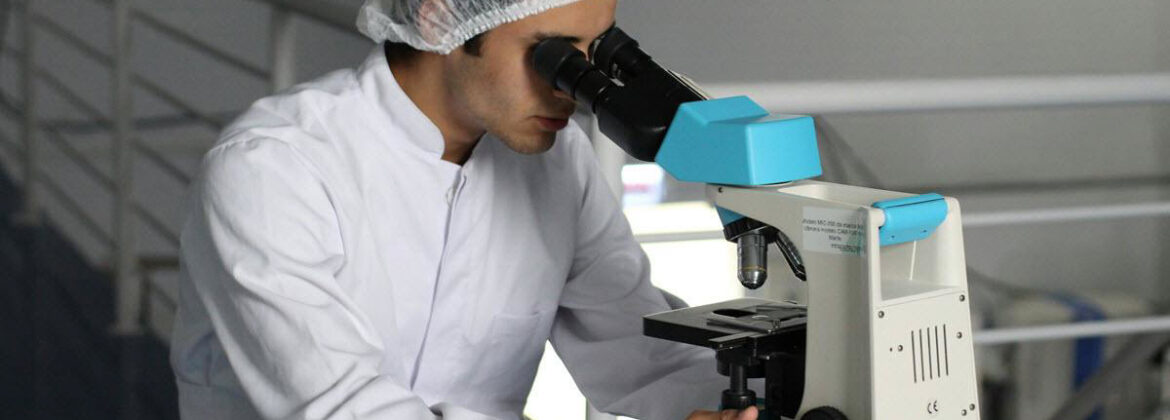Power Protection Strategies for Laboratories and Research Facilities
If you work in research and development, precision is everything. Whether in a pharmaceutical lab, a biotechnology firm, or an advanced manufacturing facility, the accuracy and reliability of outcomes hinge on countless variables being meticulously controlled.
Among these, a stable and uninterrupted power supply is one of the most critical factors. Any power fluctuation, no matter how brief, can derail entire projects, compromise results, and lead to significant financial and intellectual losses.
Investing in robust power infrastructure is not just a technical necessity, it’s a safeguard for the integrity and success of research.
The High Stakes of Precision Research
Research settings, especially those dealing with high-stakes projects, are characterized by their need for accuracy. Precision-driven research often involves using advanced instruments, sophisticated data analysis tools, and highly sensitive materials. All of these rely heavily on a continuous and stable power supply.
Consider a scenario in a pharmaceutical research lab where scientists experiment to develop a new drug. The equipment used in these experiments is often sensitive to even the slightest power fluctuations.
A brief power outage or voltage dip could disrupt the operation of centrifuges, spectrometers, or incubators, potentially spoiling samples or corrupting data. Such an event could set back research efforts by weeks or even months, delaying the drug’s development and, consequently, its availability to patients in need.
Beyond the immediate disruption, power issues can have cascading effects. For instance, a power failure might lead to the malfunction of climate control systems, which are crucial in maintaining specific environmental conditions.
Changes in temperature, humidity, or air pressure could invalidate the results of ongoing experiments, rendering days or even weeks of work useless.
The Role of Power Infrastructure in Research Settings
Given the high stakes involved, it is clear that research facilities must prioritize the integrity of their power supply. This requires more than just ensuring a connection to the electrical grid. It involves implementing a comprehensive power management strategy that includes backup systems, surge protection, and regular maintenance.
Backup Power Systems
Research facilities should invest in reliable backup power systems such as uninterruptible power supplies (UPS) and generators.
These systems provide a temporary power source in the event of an outage, allowing critical equipment to continue operating and giving researchers time to safely shut down or transition to backup protocols.
Surge Protection
Voltage spikes and surges can be just as damaging as power outages, potentially frying sensitive electronic components and corrupting data. Surge protectors and voltage regulators help mitigate these risks by ensuring a consistent power supply to critical equipment.
Regular Maintenance
Power infrastructure is only as reliable as its maintenance. Regular inspections and preventative maintenance help identify and address potential issues before they lead to power disruptions. This includes checking for worn-out components, ensuring proper generator fuel levels, and testing backup systems regularly.
Redundant Systems
Implementing redundant power systems is crucial in settings where research cannot afford any downtime. Redundancy involves having multiple backup systems in place so that if one fails, another can take over without interrupting the power supply. This approach is common in critical research facilities and is a best practice for ensuring continuous operations.
Conclusion: Power Supply is a Necessity
For those working in research, ensuring a stable power supply is both a personal and professional obligation. Researchers, facility managers, and executives alike must recognize that the integrity of their work depends on the reliability of their power infrastructure.
Relying on the basic electrical grid is not enough; proactive measures must be taken to safeguard against power disruptions.
Engaging with experts in power management is a crucial step in this process. Lorbel specializes in power solutions and can provide tailored recommendations based on the specific needs of a research facility.
From designing and installing backup systems to providing ongoing maintenance and support, these experts play a vital role in ensuring that research operations remain uninterrupted and that valuable data is protected.
The critical importance of a stable and uninterrupted power supply in precision-driven research settings cannot be overstated. The financial, intellectual, and reputational costs of power disruptions are simply too high to ignore.
By prioritizing power infrastructure and implementing robust management strategies, research facilities can protect their work, safeguard their investments, and continue making groundbreaking discoveries that drive innovation and progress.
For more information on how to secure a stable power supply for your research facility, contact the experts at Lorbel today. Visit Lorbel to learn more about their power management solutions.

